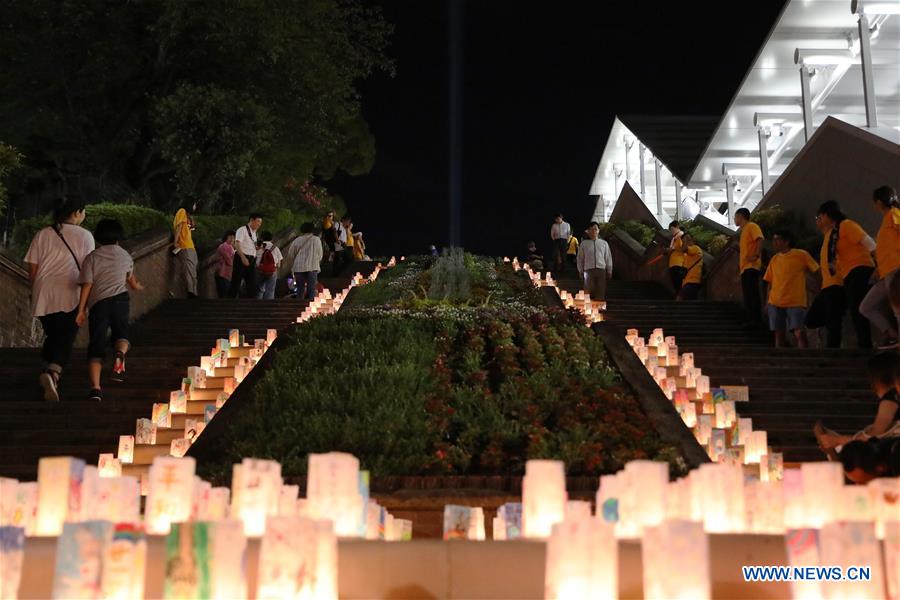 ?
?
Photo taken on Aug. 8, 2019 shows candles made by local residents at the Peace Park in Nagasaki, Japan. Nagasaki was hit by an atomic bomb on Aug. 9, 1945, which prompted Japan's surrender and the end of World War II, making it the second city to have endured atomic bombing after Japan's Hiroshima was hit on Aug. 6 the same year. (Xinhua/Du Xiaoyi)
NAGASAKI, Japan, Aug. 9 (Xinhua) -- Japan's city of Nagasaki on Friday marked the 74th anniversary of the atomic bombing in World War II, with the Nagasaki mayor calling for Japanese government's efforts in upholding the spirit of "never resort to war" during the memorial ceremony.
About 5,200 people and representatives from around 70 countries and regions attended the annual memorial ceremony held at the Peace Park.
The ceremony started with a chorus by bombing survivors and included water and flower offering to pay tribute and also several addresses from guests.
Tomihisa Taue, the city's mayor, called on the government to adhere to the spirit of "never resort to war," and also spread the spirit around the world.
"Above all, I ask the Japanese government to uphold the spirit of 'never resort to war' enshrined in the Japanese Constitution and to take the lead in disseminating that spirit around the world," Taue said.
He also urged the central government to immediately sign a UN treaty banning nuclear weapons, after having conveyed the same message the previous two years.
"There are many things that we can do in the cause of peace. Let us avoid despair and indifference and continue to cultivate a culture of peace," Taue said.
Japanese Prime Minister Shinzo Abe pledged in his speech that Japan would continue its efforts to serve as a "bridge between nuclear weapon states and non-nuclear weapon states."
A message from UN Secretary-General Antonio Guterres was conveyed in the ceremony. "The only true guarantee against the use of nuclear weapons is their total elimination," he said.
"This remains the United Nations' -- and my personal -- highest disarmament priority," Guterres said.
Nagasaki was hit by an atomic bomb on Aug. 9, 1945, which prompted Japan's surrender, making it the second city to have endured atomic bombing after Japan's Hiroshima was hit on Aug. 6 the same year.
While Japan inwardly looks at the tragedies it had experienced at the end of World War II, historians and political minds of the international community have encouraged Japan to come to see themselves not as merely victims of the atomic bombings but also as the perpetrators who led to these tragic incidents to happen in the first place.
Japan brutally occupied many parts of Asia before and during World War II, causing untold suffering and death to hundreds of thousands of innocent victims.











